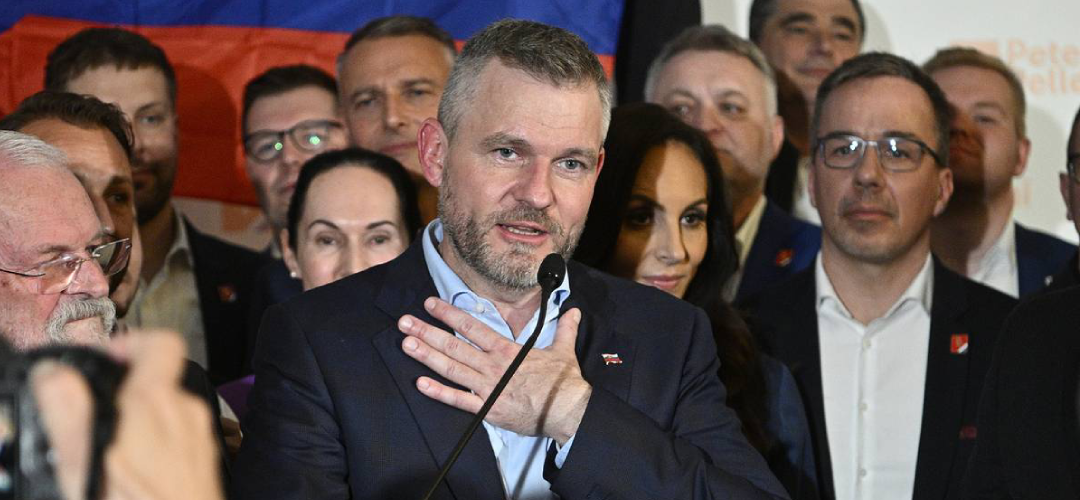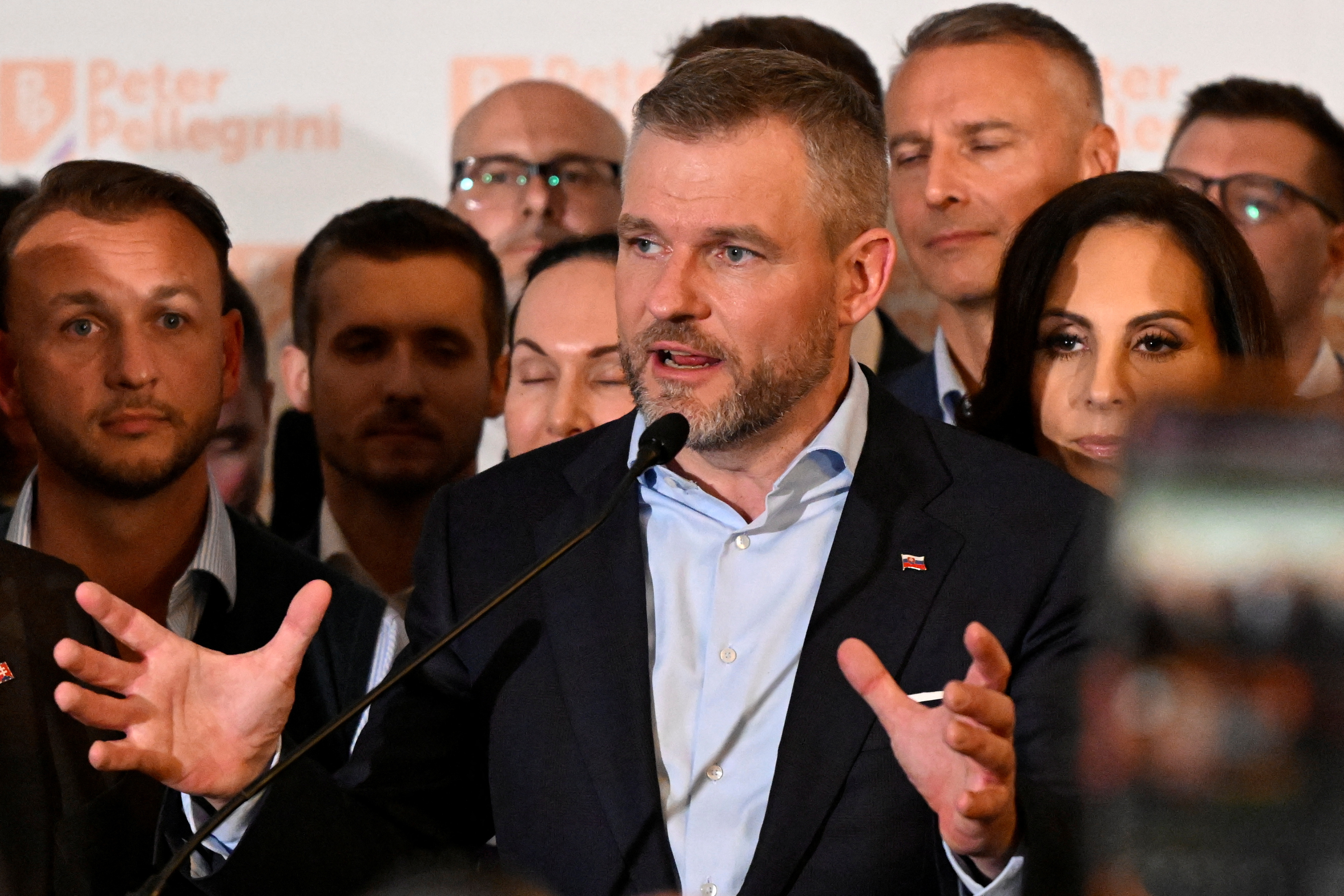Cracks in NATO?
April 13, 2024 | Expert Insights

The recent presidential election in Slovakia marks a pivotal moment in the country's political landscape, as well as its standing within the European Union and its relationship with Russia. Peter Pellegrini's victory, securing 53.26 per cent of the vote against pro-Western opposition candidate Ivan Korcok's 46.73 per cent, signifies sustaining the shift towards a pro-Russian stance initiated by Prime Minister Robert Fico.
Background
Slovakia has a long historical connect with Russia. Slovakia was part of Czechoslovakia, created by dismantling the vast and unmanageable Austro-Hungarian Empire after its defeat in World War 1. The Nazis, during their rule over Eastern Europe, created the client state of the Slovak Republic during World War II, a state which did not last until the end of the war. In 1948, a communist regime took over Czechoslovakia, which lasted till the fall of the Berlin Wall. In what is called the ‘Velvet Divorce,’ Slovakia separated from Czechoslovakia in 1993 and was inducted into the EU and NATO in 2004.
Peter Pellegrini, 48, is aligned with pro-Russian Prime Minister Robert Fico. This victory goes far beyond being a personal triumph for Pellegrini; it is seen as a consolidation of Fico's pro-Russian pivot in foreign policy.
The presidency in Slovakia, while predominantly symbolic with its limited executive prerogatives, wields significant indirect influence over the nation's policy and judicial directions. The president's authority to veto legislation and nominate judges to the Constitutional Court embeds the capacity to shape the legislative and judicial landscapes within this role. This influence is particularly pertinent given the current administration's initiation of contentious reforms to dilute corruption-related penalties. These reforms have ignited debates and concerns over the potential erosion of the rule of law, spotlighting the presidency's pivotal role in either facilitating or hindering these legislative adjustments.
Thus, Pellegrini's election does not merely symbolize a change of figurehead but signals a potential continuity, if not an intensification, of Fico's pro-Russian and domestically transformative policies, casting a long shadow over the future of Slovakia's legal and political integrity.

Analysis
The election outcome, determined from 99.66 per cent of voting districts, underscores a deepened political divide in Slovakia between those advocating for a Western-oriented path and others favouring closer ties with Russia. This divide is characterized by a segment of the populace advocating for alignment with Western principles and alliances, juxtaposed against another favouring strengthened ties with Russia, reflecting a broader ideological rift.
Under the leadership of Robert Fico, Slovakia's orientation notably pivoted towards Russia, marking a significant departure from its previously strong pro-European and NATO-aligned stance. This shift is most visibly manifested in the cessation of official Slovak weapon shipments to Ukraine, a move that starkly contrasts with EU and NATO efforts to support Ukraine amidst its ongoing conflict with Russia. Fico's vocal criticisms of Western intervention in the war further underscore this realignment, highlighting a diverging path from that of Slovakia's traditional allies. The rhetoric and policy adjustments under Fico now echoed and potentially amplified by Peter Pellegrini's presidential victory, underscore a burgeoning pro-Russian sentiment within the Slovak government's ranks.
This tilt in leadership reflects not just a national recalibration but resonates with broader geopolitical currents across Central Europe. Slovakia's electoral outcome might serve as a catalyst, emboldening pro-Russian factions within the European Union, thus challenging the bloc's unity and consensus, especially regarding policies toward Russia and the ongoing conflict in Ukraine. This realignment poses significant questions about the future cohesion of the EU, potentially straining the collective stance on critical foreign policy and security issues.
The ramifications of Slovakia's political shift are profound, extending beyond international relations to impact the domestic realm. Increased polarization within the Slovak political landscape is anticipated, likely exacerbating divisions and challenging the governance, rule of law, and democratic institutions within the country. As Slovakia's government aligns more closely with Russia, this internal polarization could hinder effective governance and strain the country's democratic fabric, affecting its political stability and its position and relationships within the European Union and NATO. Fico's policies could signal shifts in the governance landscape, especially in areas critical to the democratic fabric of society, such as media freedom, judicial independence, and the fight against corruption. These shifts might not only test the resilience of Slovakia's institutions but also influence public sentiment and political discourse, potentially exacerbating divisions and galvanizing opposition.
The electoral outcome in Slovakia, amidst a backdrop of intensifying EU-Russia tensions, particularly over Ukraine, signals a critical juncture for the nation and its role on the European stage. Pellegrini's ascent, subtly echoing Fico's pro-Russian rhetoric while pledging allegiance to the EU and NATO, captures the nuanced and potentially contradictory trajectory of Slovakia's policy direction. Pellegrini's moderation offers a glimmer of continuity with European commitments, suggesting a potential for dialogue and cooperation. However, the undercurrents of pro-Russian sentiment that underscore his and Fico's governance philosophy may lead to a re-evaluation of Slovakia's strategic priorities, impacting the cohesion and diplomatic strategies of the EU and NATO.
As Slovakia positions itself at this crossroads, the broader implications for Central Europe and the EU are clear. The rise of populist and nationalist movements, coupled with the strategic recalibrations of states like Slovakia, underscores the challenges of maintaining unity and coherence in a region marked by diverse political and social landscapes. The unfolding dynamics in Slovakia could thus serve as a bellwether for the future direction of Central Europe's political evolution and its relationship with both the European project and the broader international community.
Assessment
- Slovakia's presidential election heralds potential shifts in Central European political dynamics, potentially influencing the region's collective approach to European integration and relations with external powers, notably Russia. The outcome could redefine regional solidarity, challenging the fabric of political and diplomatic unity across Central and Eastern Europe.
- The election underscores a pivotal moment for EU-Russia relations, as Slovakia's evolving stance might complicate the European Union's unified response to geopolitical tensions and conflicts, particularly concerning Ukraine. This development could serve as a litmus test for the EU's resilience and adaptability in navigating member states' divergent foreign policy orientations.
- The balance struck by Slovakia's leadership between its historical commitments to the EU and NATO and emerging pro-Russian inclinations could significantly influence the nation's domestic policy landscape, particularly in areas crucial for maintaining democratic integrity and governance standards.








Comments